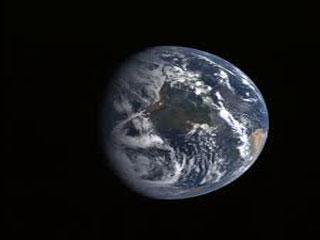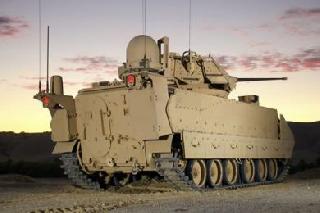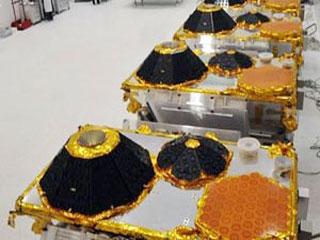
PARIS (AFP): Microfossils found in Australia show that more than 3.4 billion years ago, bacteria thrived on an Earth that had no oxygen, a finding that boosts hopes life has existed on Mars, a study published said.
Researchers from the University of Western Australia and Oxford University say the remains of microbes, located in ancient sedimentary rocks that have triggered debate for nearly a decade, have been confirmed as the earliest fossils ever recorded.
The sample came from the remote Pilbara region of Western Australia, a site called Strelley Pool, where the microbes, after dying, had been finely preserved between quartz sand grains.
Pilbara has some of the planet's oldest rock formations, set down in the so-called Archean Eon when the infant Earth was a primeval water world, with seas that were the temperature of a hot bath.
In 2002, another team of scientists, working in the same region just 35 kilometres away, said they had found bacteria fossils in the same formation.
But the claim was disputed, with some experts saying that the tiny pockmarks were not the signatures of once-living organisms but the result of mineralisation of the rocks.
Drawing on the latest electron microscopy and spectroscopy techniques, the authors of the new study say they have triple proof that their sample is biological in origin.
The microbes fed on sulphur compounds to survive, they believe.
The marks measure only about 10 millionths of a metre (0.0004 inches) long.
Their shape and clustering are not only consistent with bacterial cells, say the scientists.
They also have minute crystals of pyrite, an iron-and-sulphur compound also known as fool's gold, which are a clear by-product of metabolising sulphur and sulphates, according to their argument.
The team, led by David Wacey of the University of Western Australia, report the finding in the journal Nature Geoscience.
"At last we have good solid evidence for life over 3.4 billion years ago. It confirms there were bacteria at this time, living without oxygen," Martin Brasier, a professor at Oxford University, said in a press release.
Sulphur-loving bacteria "are still common today", said Brasier.
The bugs are found in smelly ditches and soil but also as "extremophiles" in hot springs and thermal vents in the deep ocean.
 Previous Article
Previous Article Next Article
Next Article












The Indian Air Force, in its flight trials evaluation report submitted before the Defence Ministry l..
view articleAn insight into the Medium Multi-Role Combat Aircraft competition...
view articleSky enthusiasts can now spot the International Space Station (ISS) commanded by Indian-American astr..
view article